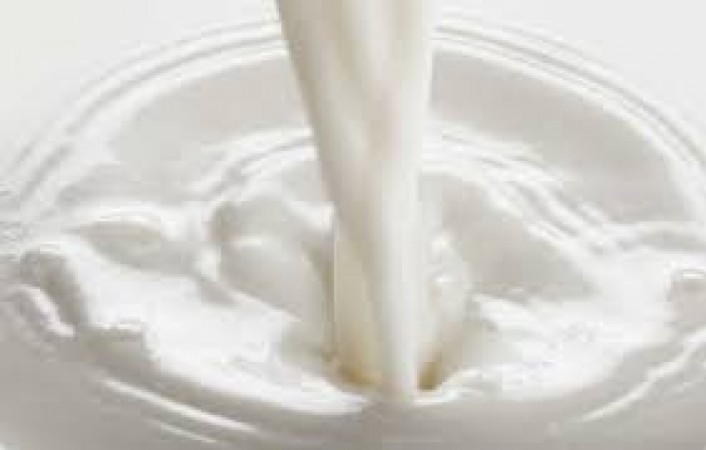
Milk is a nutrient-rich liquid, essential for many health benefits. It contains a variety of vitamins and minerals, including calcium, protein, vitamin D, and potassium. These nutrients are crucial for bone health, muscle function, and overall bodily functions.
Several components in milk are believed to contribute to hair health. These include:
Hair is primarily composed of keratin, a type of protein. Adequate protein intake is vital for maintaining the strength and integrity of hair.
Milk proteins, such as casein and whey, can support hair strength and repair damage. They provide the building blocks needed for keratin production, which is essential for hair growth and resilience.
B-vitamins in milk, particularly B2 and B12, are known to:
Vitamin D, found in fortified milk, plays a role in hair follicle cycling. It helps maintain hair growth phases, potentially preventing hair loss and promoting thicker hair.
Calcium is not only important for bones but also for hair. It:
Zinc, another mineral in milk, helps:
Applying milk directly to hair as a rinse can provide moisture and shine. The proteins and fats in milk coat the hair, giving it a glossy appearance.
Combining milk with honey can create a nourishing hair mask. This mixture can:
There are various DIY recipes using milk for hair care. Popular treatments include:
Several studies suggest that the nutrients in milk can contribute to hair health. For instance:
Many dermatologists acknowledge the potential benefits of milk for hair. They highlight that:
People with milk allergies or lactose intolerance should be cautious. Using milk on the scalp might cause irritation or allergic reactions.
For those with naturally oily hair, milk’s fat content might exacerbate greasiness. It’s essential to balance milk treatments with regular cleansing.
Relying solely on milk for hair health is not enough. A balanced diet rich in various nutrients is crucial for maintaining strong and shiny hair.
For those avoiding dairy, plant-based milks like almond, coconut, and soy milk can be alternatives. These options also offer:
Coconut milk, in particular, is known for its:
To achieve the best results, it’s recommended to use milk-based treatments once or twice a week. Overuse might lead to build-up or greasiness.
Pairing milk with ingredients like aloe vera, yogurt, or avocado can enhance its benefits. These combinations provide a comprehensive range of nutrients for hair health.
Each hair type is unique. It’s important to tailor milk treatments based on individual hair needs, whether it’s for moisturizing, strengthening, or adding shine.
While milk is beneficial, it’s not a miracle solution for all hair problems. Consistent care and a balanced diet are necessary for noticeable improvements.
Patience is key. It may take several weeks of regular use to see significant changes in hair texture and strength.
What works for one person might not work for another. Experimenting with different milk-based treatments can help find the most effective routine.
Always rinse thoroughly after using milk-based treatments to avoid residue build-up.
Prepare fresh milk treatments to ensure the best results. Store any unused mixture in the refrigerator for up to a week.
Milk can be a beneficial addition to your hair care routine, but it’s important to balance expectations. Consistent use, along with a healthy diet and lifestyle, will yield the best results.
Combining milk treatments with other hair care practices, such as regular trims, protective styles, and avoiding excessive heat, will support overall hair health.
Pay attention to how your hair responds to milk treatments and adjust accordingly. Every individual’s hair is different, and personalization is key.
Now your iPhone will power off in a new style, this feature of Apple is making headlines
Mercedes-Benz launches amazing cars, luxury SUVs have powerful features
Indian Army Receives First Indigenous Suicide Drones with Reusable Technology